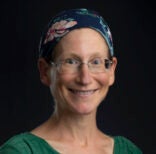Around this time of year, it often feels like everyone I meet can be divided into two categories: Those who are making Passover, and those who aren’t. Wherever I go the first question I am asked—the first question everyone in my neighborhood of Jerusalem seems to be asking—is “what are you doing for Pesach?” I respond somewhat sheepishly. “We’re going to my sister-in-law’s this year, as we do every year. I confess I’ve never made Pesach before.”
My interlocutor will either share in my sense of relief, or else look at me jealously and say, “You’re so lucky. I’m going crazy. I have 16 guests coming for the Seder, and my parents are staying with us for ten days…”
This is followed by a detailed account of just how much of the house has already been cleaned, and what still remains, and how it all is going to have to get done, somehow. I listen patiently. I feel it’s the least I can do. After all, I’m not the one shopping and cooking and scrubbing for days on end. And yet this year, on this holiday when so much of the preparation falls to others, I am trying to figure out how I, too, can find my own way to prepare for Passover and make it my own.
The Haggadah records a famous Talmudic debate between two third-century Babylonian sages about how to interpret the Mishnah’s rule that in telling the story of the exodus, one must “begin with shame, and end with praise.”
Each year that I am not making Passover, I try to read through a new commentary on the Haggadah … and think of creative new ways to share the Passover story with my children.
According to Shmuel, this means recalling that “We were slaves to Pharaoh in Egypt and the Lord God brought us out,” otherwise known as Avadim Hayinu. According to Rav, it means saying that “originally our ancestors worshipped idols, but God brought us close to them.” That is, for Shmuel the shame is our physical enslavement, and the miracle of Passover is our physical redemption. For Rav, the shame is our idolatrous past, and the miracle is our spiritual redemption in becoming God’s people.
This debate between Rav and Shmuel reminds me that there have always been multiple ways of relating to Passover. There is the physical narrative—the narrative of those who are scrubbing out their cupboards and buying multiple sacks of potatoes and cooking pots of chicken soup—and then there is the spiritual narrative, which involves thinking through the themes of the holiday and coming to terms with what it means to be free to serve God.
On some level we would all do best to prepare spiritually for Passover—to read the new Haggadot published that year, to study the midrashim about the exodus from Egypt, to review the laws of how to prepare the home, regardless of whether we are the ones engaged in the preparations. But the weeks before Passover are far more hectic for those who will be hosting, and so it’s understandable that some of us are more focused on the physical plane, that is, on the level of Shmuel’s narrative. The rest of us, who are fortunate that someone else is making our lives easier, can focus instead on our spiritual preparation, on the level of Rav’s narrative, in the hope that we can enrich the Seder that others are making with our insights. And so I try, each year that I am not making Passover, to read through a new commentary on the Haggadah, to listen to a few shiurim (lectures) online, to think of creative new ways to share the Passover story with my children.
The Haggadah does not privilege Rav or Shmuel’s narratives, but includes elements of both: We eat bitter herbs to remember how the Egyptians embittered our lives and recline to celebrate our freedom from servitude, but we also sing psalms of praise to God and open the door for Elijah the prophet who will herald our spiritual redemption. Passover is about both, and many of us need both the physical and the spiritual dimensions: My father, the bulk of whose preparations involve reading every Haggadah published since the previous Passover, would not feel it was Passover if he didn’t slice the horseradish. For others, the physical and spiritual elements are not so easy to disentangle: There is a spiritual dimension to preparing to open our home to others, and the hard physical labor feels deeply fulfilling.
And then there is the difference that stage of life can make. I am reminded of times in my life when time-bound commandments seemed impossible to fulfill—when I was home with newborns, or chasing after three kids still in diapers. A deep immersion in physicality—breastmilk, diaper rashes, heavy eyelids after sleepless nights—prevented me from having the kind of open dialogue with God through prayer and study to which I had grown accustomed in my single years.
But my kids are getting older—at least just a bit older—and I find myself able to think more abstractly again, and to shift some of my focus from the physical to the spiritual planes. I have come to appreciate that the question of which level of experience is in the foreground will shift over time, and is meant to shift over time, and that is all right. Though we may alternate between the narrative of Rav and the narrative of Shmuel, we hope that the stories we tell will move us toward a place where we can praise God and appreciate life’s blessings, whatever form they may take.
Ilana Kurshan, who lives in Jerusalem, is the author of the memoir, “If All The Seas Were Ink.”
The New York Jewish Week brings you the stories behind the headlines, keeping you connected to Jewish life in New York. Help sustain the reporting you trust by donating today.





